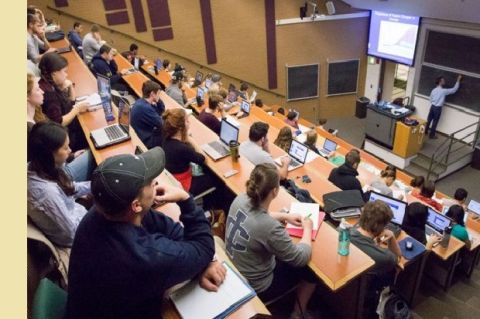Development of the International Education System in 2023 – International education has become an increasingly important factor in today’s globalized world. Amidst the rapid development of technology and communication, international education plays a role in preparing students to become skilled and knowledgeable global citizens. 2023 is the year that marks the development of an international education system that is more inclusive, adaptive, and focuses on developing 21st century skills competencies. This article will examine more deeply the development of the international education system in that year.
One of the significant changes in the international education system in 2023 will be a greater emphasis on inclusiveness. Inclusivity refers to efforts to ensure that all students, regardless of cultural background, ethnicity or special needs, have equal opportunities to obtain a quality education. Inclusive education promotes diversity, respects individual differences, and creates a welcoming learning environment for all students.

Development of the International Education System in 2023
In 2023
many countries and international educational institutions are focusing on developing a more adaptive curriculum. An adaptive curriculum is designed to adapt to the needs and interests of students and prepare them for real-world challenges. This involves implementing learning strategies that are more interactive, project-based, and collaborative. Students are invited to develop critical skills, creative, analytical thinking, and problem solving skills needed to succeed in a changing global era.
Moreover
technology continues to be an integral part of the international education system in 2023. The use of technology in education opens doors for more interactive and affordable learning methods. Technologies such as online learning, augmented reality, and artificial intelligence are being used to increase accessibility, facilitate remote learning, and provide more personalized learning experiences. International education systems also use data and analysis to understand the needs of individual students and optimize the learning process.
In 2023, collaboration between international educational institutions will become even more important. Schools, universities and other educational organizations work together to share knowledge, experience and best practices. This collaboration enables the transfer of cross-cultural knowledge, the development of student and teacher exchange programs, and the preparation of a globally integrated curriculum. Through collaboration, international education is able to produce students who have a deeper understanding of cultural differences, a global perspective, and the ability to adapt in a multicultural environment.
In addition, in 2023, international education will increasingly emphasize the development of 21st century skills competencies. This competency includes skills such as digital literacy, creativity, collaboration, complex problem solving, and leadership. International educational institutions strive to create a learning environment that encourages students to develop these skills through an active, project-based and collaborative learning approach. With a focus on developing 21st century skills competencies, international education seeks to produce graduates who are ready to face the challenges and demands of an increasingly complex world of work.
In 2023, international education also further strengthens the link between education and the real world. Educational institutions work with industry and local communities to organize internships, field trips and collaborative projects. It aims to provide students with hands-on experience in applying their knowledge and skills in relevant contexts. Through a close relationship with the real world, international education seeks to produce graduates who are ready to work and contribute significantly to global society.
In conclusion, 2023 will witness the development of an international education system that is inclusive, adaptive, and focuses on developing 21st century skills competencies. These changes include an emphasis on inclusivity, adaptive curriculum development, use of technology, collaboration between educational institutions, development of 21st century skills competencies, and a close relationship between education and the real world. With these developments, international education in 2023 has the potential to prepare students to become global citizens who are skilled, knowledgeable, and ready to face the challenges of an increasingly complex world.